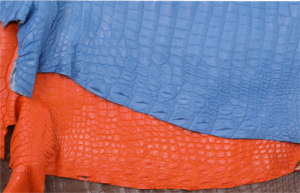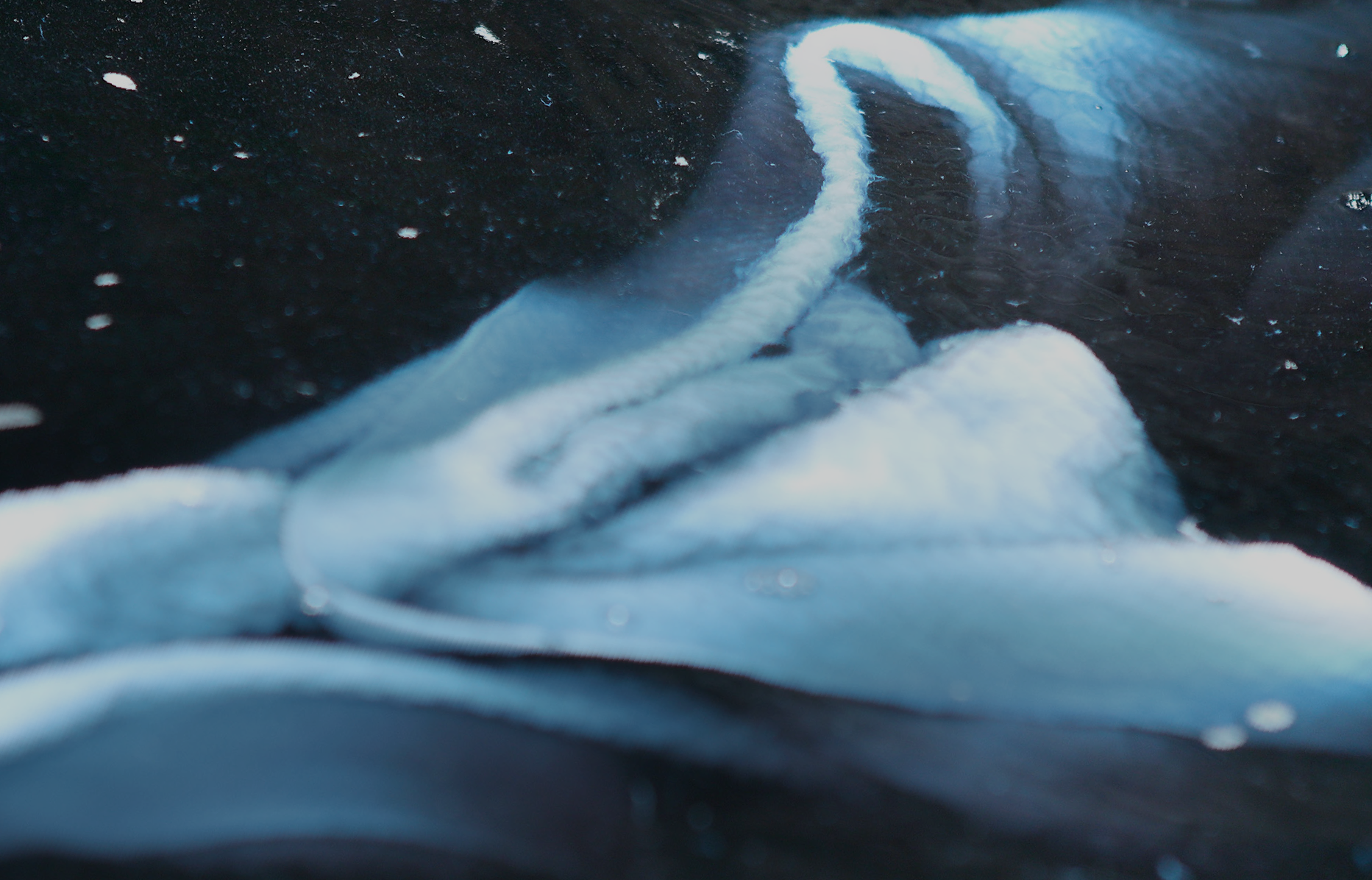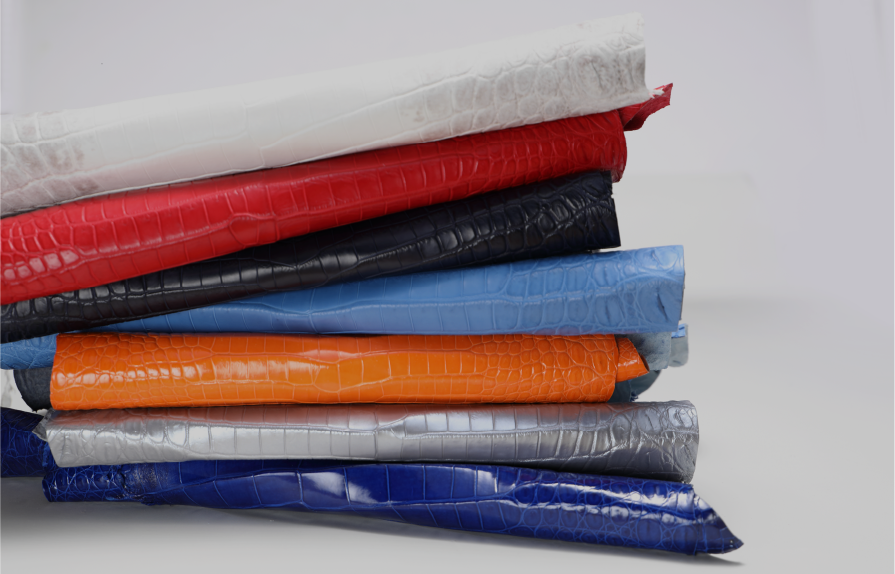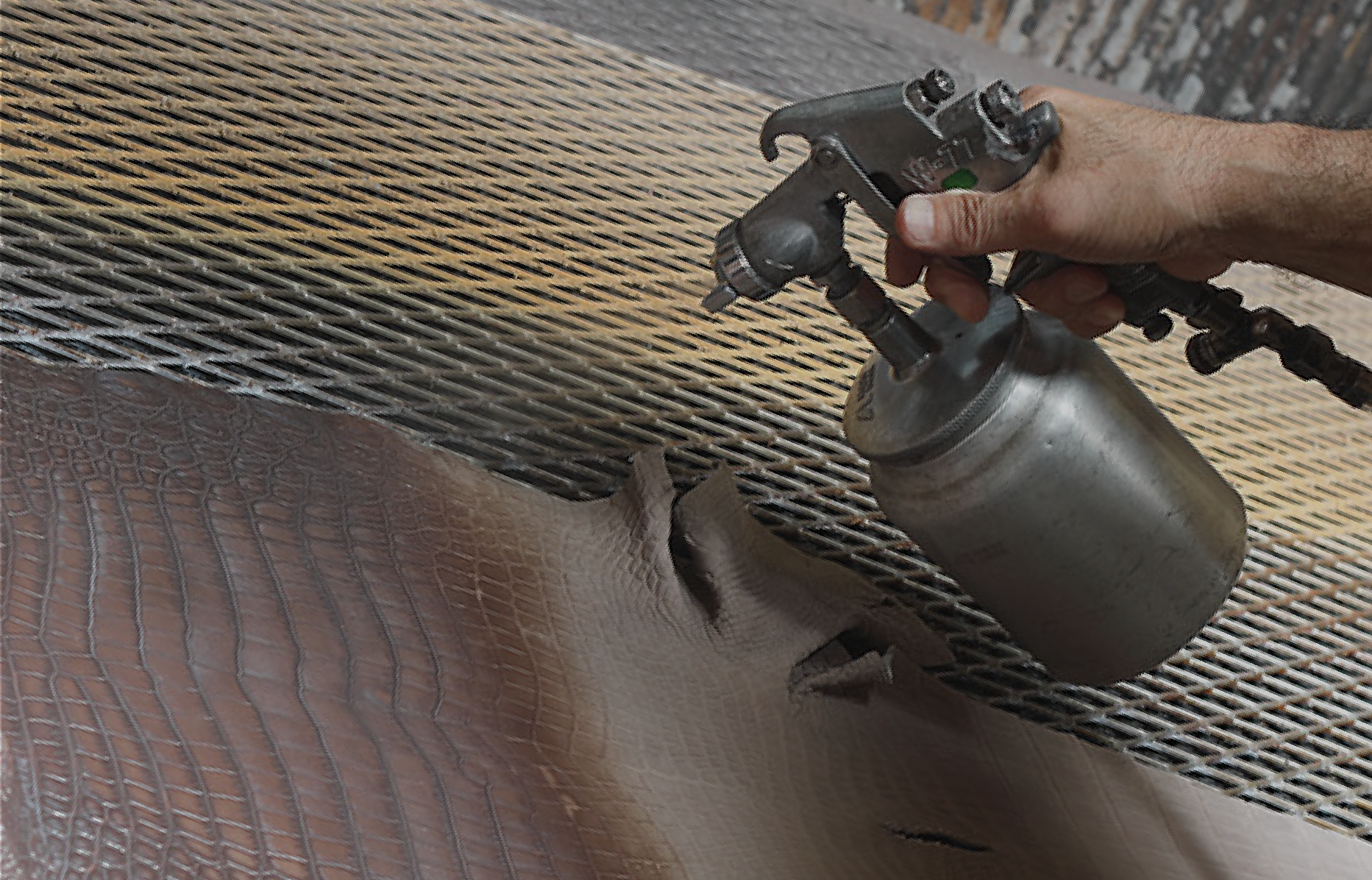Leathers
Experience “savoir-faire“
Exotic leathers are natural materials that has their own uniqueness by piece.
Especially, crocodile is called “king of leather” or “leather diamond” and defined as the most luxury leather. Python leathers have exotic scales and marks which makes rich styles on products. On the other hand, lizard has unique fine-grained scales and shiny surface that makes small leathers even brighter.
The reptile leathers have unique finishing techniques such as glazed finish or bleach technique. This gives different appearance on leathers, and technique varies depending on tanneries.
To have stable production, Yamamoto Inc. place the latest equipment, and all the process will be fully automated after the factory has been completely updated. This innovation enables to focus on innovating the cutting-edge art piece and technology from a factory in Japan.
Products
Crocodylus niloticus
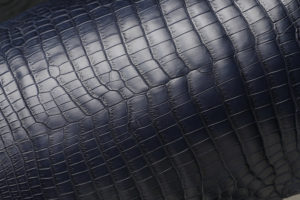
(Crocodylus niloticus) is the second largest of the world’s crocodilian species after the saltwater crocodile. It is widespread throughout sub-Saharan Africa, but occurs mostly in the central, eastern and southern parts of the continent and lives in a variety of aquatic environments such as lakes, rivers and marshlands.
On average an adult Nile crocodile is between 4.1 and 5 meters long, and weighs around 410 kg. The species is listed on Appendix II of CITES.

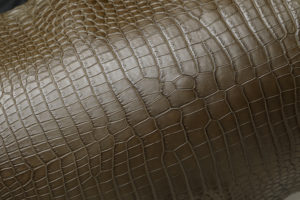
Crocodylus porosus

The saltwater crocodile (Crocodylus porosus) is a crocodilian native to saltwater habitats and brackish wetlands from India’s east coast across Southeast Asia and the Sundaic region to northern Australia and Micronesia. An adult male saltwater crocodile, from young adults to older individuals, ranges 3.5 to 6 m (140 to 240 in) in length and weighs 200 to 1,000 kg. In CITES Appendix II:Only the populations of Australia, Indonesia and Papua New Guinea. Our Porosus is selected from AU and ID.
Alligator
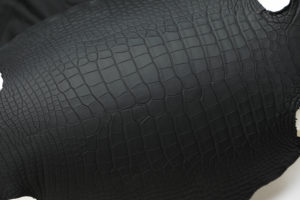
Alligator has a unique characteristic that has long torso. It allows makers to reduce wasted leathers. It’s also known as a sustainable supply because of the following reasons.
The alligator population in the United States has gone from near population collapse in the 1960s to over 5 million individuals today because of science-based alligator management programs, which include sustainable wild alligator harvest and alligator farming and ranching programs. In Louisiana, Texas, Georgia and Florida, alligator farmers contract with private landowners and local and state governing bodies to purchase the rights to collect alligator eggs. The landowners restore and enhance the wetlands in order to have a more productive alligator nesting habitat and egg harvest. These restoration and scientific management programs result in better habitats for over 8,000 other species of plants and animals. The farmers collect the eggs (before hurricanes can flood nests or predators like raccoons can eat the eggs), hatch the baby alligators and release 10% back to the wild once they are 3-4 feet in length – bolstering wild alligator populations to grow and thrive.

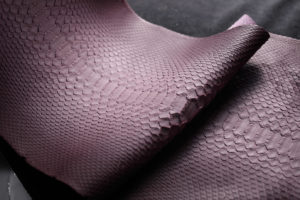
Python molurus

A characteristic of Python molurus is small scale, but its width from top to bottom is wider than python reticulatus. The scale and the texture are perfectly elegant.
Python reticulatus
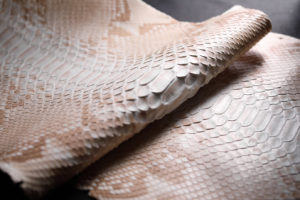
It has larger scales and belly. This inspires a wild appearance, but at the same time the shape of scale looks like a diamond.


Varanus Salvator

Even if you are in country where doesn’t allow importing lizard skins from Malaysia, we have connections with farms all over the world and are able to give a stable supply for you.
Varanus Niloticus
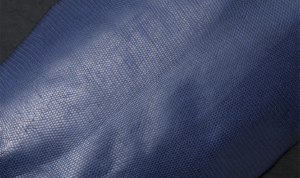
Our bleaching technique is able to completely take all the natural marks out with keeping its thickness and elegance. Once skins become perfect white, it could be any colors both for glazed and matte.

